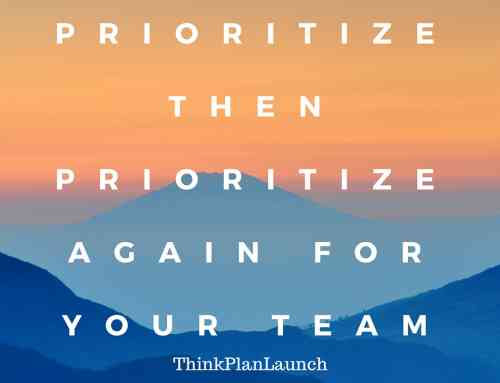Hiring based on only skills and experience is a common mistake many businesses make. It’s the section of the resume that recruiters pay the most attention to and often make the most mistakes. We look into how skills and experience are overrated, what the risks are of giving it too much weight, and the other factors which need to be considered when making hiring decisions.
Table of Contents
Skills and experience is overrated
One of the big controversies in hiring is how much skills and experience weigh in on a candidate’s chances of being selected for a job position. In many cases, there is too much emphasis placed on skills and experience. There are a lot of factors to consider when making a hiring decision.
Many recruiters lean towards the idea that skills and experience should be the main thing to look at when reviewing a candidate’s resume. There is usually a bias towards candidates who have an extensive list of skills and experience that might be relevant towards the job. Such as bias is often dangerous.
Bias towards skills and experience
It’s easy to develop a bias towards skills and experience as a main factor in hiring. There is a common perception that candidates who already possess relevant skills and experience will need less training, be more productive and efficient, and will be faster to reach peak job performance. While this is certainly possible and more likely than someone who is inexperienced, there is no guarantee that the candidate is really going to accomplish this. After all, a list of skills and experience on a resume is just that. A list. It does not indicate high performance, intelligence, good behavior, a good attitude, and a motivation that drives a person to success. In fact, as we will discuss later, there are cases where skills and experience can be a disadvantage.
One of the common bad practices in hiring is when candidates are given preference because they have a list of “nice-to-have” skills and experiences in their resume. They appear to possess everything that could ever be needed for a job. In many cases a lot of these skills are separate to the core set of skills that makes up the job position. There are several issues that cause this problem.
The job description and the resume
One area that creates inaccuracies is with the job description. There is usually a difference between the written job description and the actual job itself which causes hiring mistakes to happen. Without proper job benchmarking, a job description will be inaccurate. The list of skills and experience needed for the job will be either inaccurate or exaggerated as a result of poor job benchmarking. Without accurately defining the job, it is easy for a larger, unnecessary list of skills and experience to be generated to cover every possible task imagined. The list should really focus on the most likely and most frequent tasks for a job. Hiring candidates based off this inaccurate list of required skills and experience makes it just as inaccurate to predict success and performance.
Another issue is with the candidate and their list of skills and experience on their resume. Candidates will have varying degrees of ability for each skill set. Essential skills and preferable skills shouldn’t be given the same weight. A candidate who is a rockstar in a preferable skill but a total novice in an essential skill will be less effective than someone who is the opposite case. However, making a judgment here will probably not matter much since what is required and what is essential is largely unknown or inaccurate.
Let’s say you do have an accurate list of required and preferable skills. One thing a recruiter will need to do is assess a candidate’s performance and depth of knowledge for each set of skill. It is not enough that someone has learned a skill and used it. For many positions in growing companies, it’s better to hire experts in a few skills than novices in many. Of course, this all depends on the role and nature of the company. Many small organizations call for generalists.
58% of employers have caught people lying on their resume
Lying on the resume
There is always a good chance that a candidate is embellishing their resume or just outright lying. In fact, 58% of employers have caught people lying on their resume. The actual number of candidates who lie will usually remain unknown.
Skills and experience make up the most lied about section of the resume. This is the area where candidates know they will shine or fall short so a lot are tempted to boost up their list. A job description that calls for a large range of skills and experience will also spur more of this behavior as candidates want to fill in the gaps.
By focusing on the core set of skills and experience determined by job benchmarking, a narrower, focused list can be developed which will make assessment much easier. And while it is still possible for candidates to lie, there is less of a chance. The job becomes more specific and focused and candidates will know whether they actually have a chance at the job or not and more qualified candidates will apply. Someone who is capable of performing 80% of a short list of requirements will feel more comfortable applying that someone who can perform 50% or a long list of requirements, most of those being nonessential in the first place.
While it is preferable to hire candidates who already have certain skills and experience, there are often many other aspects which are good indicators for predicting success or failure. The interference this bias creates is significant and leads to wasted resources.
Risks of hiring mistakes
Hiring mistakes are costly, more so than many executives will believe or give attention to. It leads to high turnover and significant costs to the company’s bottom line. Each time a person is hired, fired or resigns, companies pay the price dearly. The loss is not only just in terms of finances, but also in productivity and workforce morale. Mistaking skills and experience for job success is a big factor in turnover.
One of the key metrics that indicates the health and efficiency of a company is its turnover rate. If it isn’t something being discussed in executive meetings, it’s time to give room for a discussion about it. Focusing on metrics such as profitability, cost reduction in processes, growth and others is important, but, the turnover metric has a significant impact on a company’s bottom line.
There is no doubt that labor costs are significant to a company’s cost of goods and services. High turnover can amplify these costs considerably and eat into profits.
As for workforce morale, resentment and low job satisfaction is contagious. There is usually a thin line between loyalty to the company and loyalty to other employees. When key people leave, there is a good chance that others will be close to follow.
A lot of these employees that leave or are let go are people who might have had the desired skills and experience, but lacked a lot of the other key accountabilities. Low performance leads to low job satisfaction which leads to resignations.
The role of skills and experience in job fit
Job fit is usually a concept that is often misunderstood. There are many factors to consider when determining job fit. Certainly, it is dangerous to give the power of defining the job to any one person. There are a number of separate duties and interactions that exist between an individual and members within the organization. The entire job benchmarking process is an important step to start with in the beginning.
It is necessary to select candidates who correctly fit the job position. Without a correct fit, companies suffer from poor performance, a loss of productivity and profit, and a vicious cycle of hiring, firing, and resignations. This leads to bad morale for the entire workforce and can be disastrous for the company’s health.
Starting with the hiring process is the best way to tackle these issues. Skills and experiences should be part of the hiring criteria, but are largely ill-chosen without the right benchmarking techniques.
Job benchmarking is important for determining the right skills and experience to list, among the other things. When this is determined, the other hiring factors complete the picture for a good job description. The other factors include behaviors, acumen, and motivations which complement each other. The right candidate that fits this picture is one who will have the best chance for success.
The risks of focusing only on skills and experience
While focusing on someone’s list of skills and experiences, it is easy to neglect the aspects of a candidate which will predict success. Behaviors, motivators, intelligence, knowledge, and a list of other job-specific criteria need to be given weight.
Candidates need to be thoroughly screened for undesirable characteristics such as incompetence and bad attitudes and behaviors. A history of drug and alcohol problems, defiance, inappropriate behavior, office politics, badmouthing companies, laziness, stealing, lying, and other personal problems are usually left out of the resume. Candidates with these issues can easily slip through the cracks if they are not properly assessed.
In many cases, hiring managers will do their due diligence by monitoring a candidate’s social media channels and online presence. While this is a good practice, it is often not thorough enough. The most devious of individuals are well disciplined enough to cover their tracks and hide their misdeeds. Job positions that give great power to employees carry the biggest risks.
Employee misconduct is prevalent in many companies and it’s usually the person that is least suspected is taking advantage of their powers for self-gain. If it isn’t the company they work for that they are ripping off, then it’s the company’s clients which makes it significantly worse.
How well will a list of skills and experience reveal these problems? Zero. In fact, shortlisting candidates based solely on skills and experience will only compound the problem when other candidates who are fit for the job are being ignored.
Pay more attention to these things
Behavior is a good place to start. Certain jobs require certain behaviors. Organization, urgency, competitiveness, follow through, etc… are key behaviors for some jobs but not others. Expecting someone to be perfect in every desirable behavior for every job type is expecting too much. There needs to be a lot of consideration in considering what should be assessed. In many ways, less is more.
Determine what behaviors contribute to the success of the job, the team, and the organization. If you have similar behavioral requirements for different jobs in the organization, chances are you need to start over again. Each job is unique, even within the same department. It is always a good idea to factor in behavioral characteristics of your current workforce when promoting people or changing roles.
Motivators are another important aspect to consider. What is it that motivates a person to action or inaction? Our job benchmarking process pays attention to various categories of motivators that help assess if a person is right for the job. If a person fits a job’s require motivators, they will feel satisfied and rewarded because they are naturally motivated to succeed. People thirst for different things. A creative person will do better as a fashion designer than as a banker. A person who loves knowledge and growth will do better as an academic than as a police officer.
Intelligence also plays into many jobs. How it manifests itself is usually different though. There is a great debate into how there are different types of intelligence. Whatever the case may be, it is important to take into consideration that intelligence may prove much more valuable than any current skill set or experience.
Emotional intelligence is something else to factor in depending on the job. It is often a good indicator of success for many jobs that require extensive human interaction and leadership. Always be on the lookout for candidates with high emotional intelligence. There is a good chance that they might do well in other job positions that they aren’t even considering. Hiring internally should also call into question the levels of emotional intelligence already present in the workforce. Opportunities maybe present.
Whatever the requirements are for a job position, it is necessary to do a proper job benchmark, determine what skills and experience are actually needed, and decide what other job factors to consider based on that job benchmark. Going skills and experience first will most likely lead to high turnover and low job satisfaction for employees.




Leave A Comment